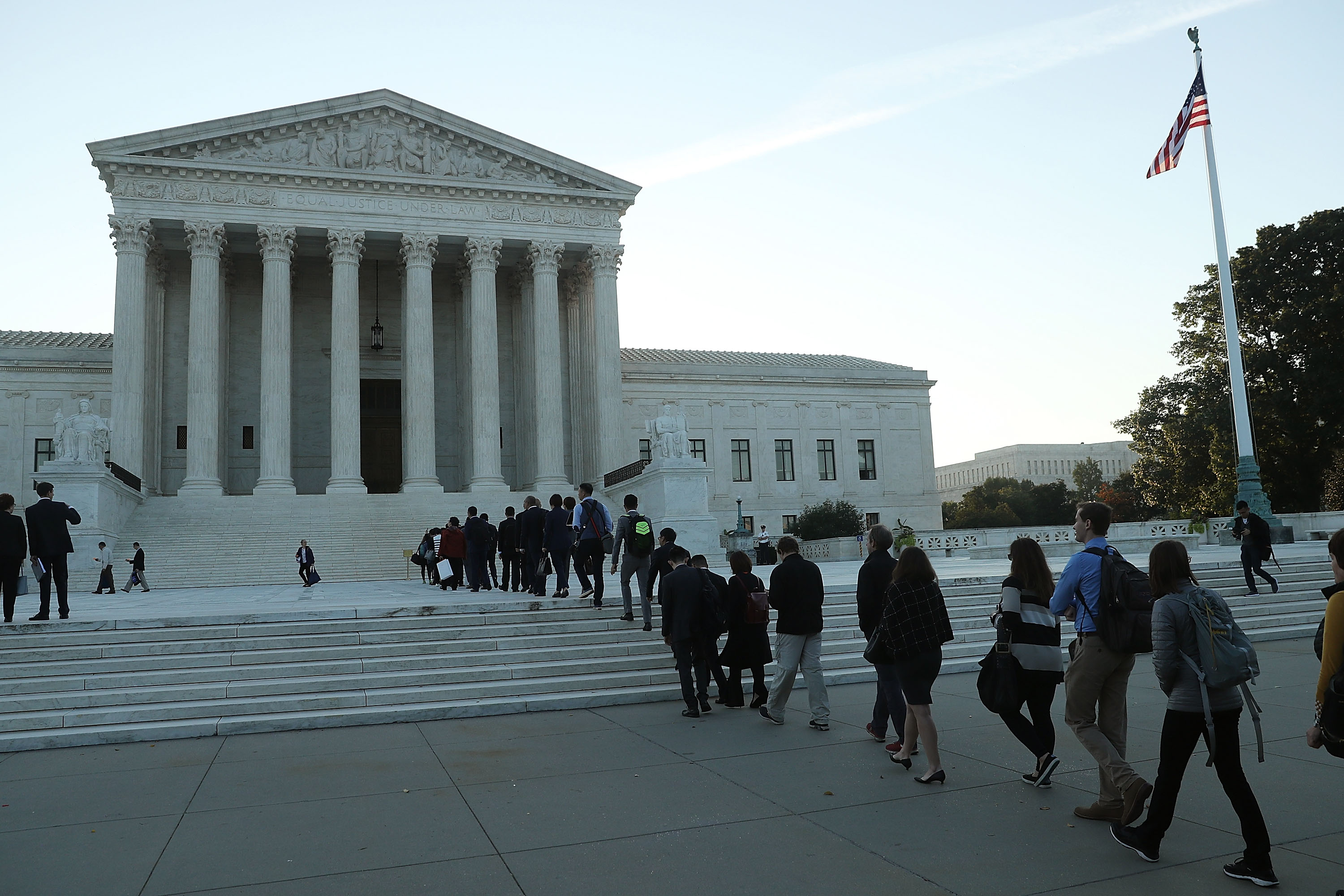US Supreme Court opens term with case of endangered frog
The US Supreme Court opens its new term with just eight of the nine justices, as US President Donald Trump’s nominee Brett Kavanaugh awaits Senate confirmation (MARK WILSON)
Washington (AFP) – The US Supreme Court opened its new term Monday by handling a case involving a small, critically endangered frog.
The court has been short of one of its nine justices since the retirement of Anthony Kennedy in late July. President Donald Trump’s nominee to replace him, Brett Kavanaugh, seemed a sure bet for approval until allegations of sexual misconduct arose, and he has yet to be confirmed by the Senate.
In the meantime, the court got to work hearing arguments in a case involving the Lithobates sevosus, better known as the dusky gopher frog, an amphibian native to the southern United States.
The frogs, considered “critically endangered” by the International Union for Conservation of Nature, live exclusively in a damp forest in the southern US state of Mississippi.
However the US government’s Fish and Wildlife Service wants to be able to move them to an area some 50 miles (80 kilometers) away in the nearby state of Louisiana.
The chosen spot has ideal conditions for the frogs to reproduce and thrive, especially pools of water that dry up so that fish cannot eat the frog eggs.
The Louisiana property owners, however, oppose the plan, arguing that the frogs currently do not live in their area.
The Supreme Court has to answer the following question: does the government have the right to designate private land as critical habitat if the species that is endangered doesn’t even live there?
– Upcoming caseload –
On Tuesday, the justices will hear arguments in the case of a death row inmate from the southern state of Alabama who has suffered several strokes and no longer remembers his crime.
His defenders argue that the death penalty is meaningless if the prisoner does not understand why he is being executed.
In November, an elk hunter will come back for the second time to argue that he has the right to use his hovercraft on rivers in Alaska. The case involves determining the limits of federal and state’s regulatory laws.
While the court is not currently scheduled to handle any hot-button issues like gun control or abortion, they may consider cases involving the confinement of children separated from their parents after they entered the United States illegally, or the legality of banning transgender people in the US armed forces.
Disclaimer: This story has not been edited by Siliconeer and is published from a syndicated feed. Siliconeer does not assume any liability for the above story. Validity of the above story is for 7 Days from original date of publishing. Content copyright AFP.


